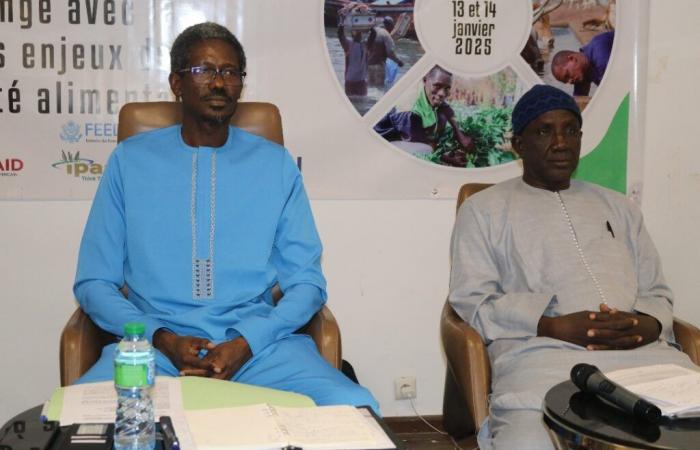The chief of staff of the Secretary of State for cooperatives and peasant supervision, Djibril Diop, declared that after 20 years, the Agro-Sylvo-Pastoral orientation law (LOASP) will be subject to a review on the instructions of the highest authorities in the country. According to him, this is the first time that a President of the Republic has held the Higher Agro-Sylvo-Pastoral Orientation Council. Specifying that between ”end of February and beginning of March” we will move towards holding this first Orientation Council. He spoke this Monday during a press capacity building workshop on the LOASP development process organized by the National Council for Rural Consultation and Cooperation (CNCR) in Dakar.
“This law, after 20 years, is now being revised on the instructions of the highest authorities in the country. The instruction that was given was not to leave anyone stranded. Actors in the agricultural and livestock sectors, in activities linked to forestry, but also in fishing activities. All these actors can express their concerns and they can be integrated into the process of this law which constitutes the framing or steering document for the country’s agricultural policy and rural development,” recalled Djibril Diop.
Mr. Diop recalled the various challenges of this Higher Agro-Sylvo-Pastoral Orientation Council. “The challenge is that this document is subject to appropriation by the communities. The other issue is the holding for the first time of the higher agro-sylvo-pastoral orientation council. There is a decree from 2007 which mentioned it, which is each year a moment of exchange between actors from the rural world and the President of the Republic, but this meeting is never held. For a first, it will be between the end of February and the beginning of March, we will move towards holding this first Agro-Sylvo-pastoral Orientation Council which will be a moment of intense exchange between the different actors. As part of this revision of the law, journalists have a role to play throughout the chain of the revision process in terms of revealing information, but also in terms of supporting the appropriation of the law. It was even to promote better popularization of the law so that each actor can know what the law allows them to do, what the law offers them, but also what opportunities in terms of development for all actors in the agro world. -sylvo -pastoral,” he said.
Along the same lines, Nadjirou Sall, president of the Board of Directors of the National Framework for Consultation of Rural People of Senegal (CNCR), thinks that it was important to take time to discuss the issues with professionals.
“We are in the revision phase so that this is an important subject for all of Senegal linked to an issue in the development of Agros Sylvo-Pastoral Halieutique activities. But for a purpose that achieves the food sovereignty of our country.
Creation of income and employment so that we can live together in our country Senegal. We raised the debate on food sovereignty in 1996…. On the prerequisites, a law was passed that we can apply 100%, which could very quickly help food sovereignty. Because the law, in its 50 provisions and some commitments, it provides for everything. Whether the status, the commitment, the financing, the way of doing things, everything is provided for in the law. We need to think about its application,” declared Nadjirou Sall.
Speaking about the revision of this law, he maintains that: “The first segment, we want to arrive at an Agro-Sylvo-Pastoral and Fisheries Law. Consultations are being held in all regions of Senegal to allow rural stakeholders to make their contributions, to which we should make a strong contribution. But for us, what is close to our hearts is title 2 of the law which provides for the recognition of professions, the recognition of those who practice them. How can we make it operational so that it is applicable after its revision,” said Nadjirou Sall, CNCR President.
Belgium



